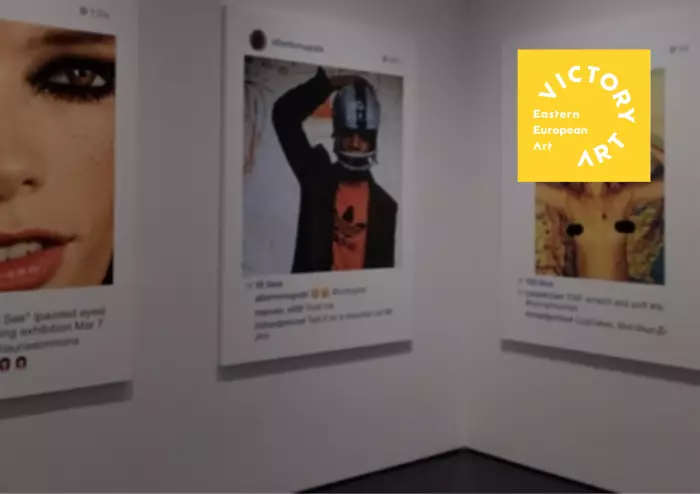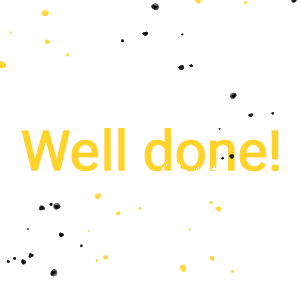MUST READ ART BLOGS
The Most Memorable Moments In The Art World In 2020

The Arson of Notre Dame (2019)
The arson of Notre Dame (2019) On Monday, the 15th of April, the fire arose from Notre Dame’s Cathedral. Within 9 hours of glowing flame spreading across the Cathedral, many important art pieces crucial to the history of the Roman Catholic Church were severely damaged or beyond repaired despite the best attempt from firefighters to recover the critical works of art. The rebuilding process of Notre Dame is underway, but it remained the most shocking and tragic news of international art in 2019.
Banana taped on the wall sold for $120,000
In December, an exhibition in Miami, Florida, displayed one of the most bizarre forms of art, edible art, in which a ripe banana was taped on the wall. The story could not have been so controversial if the painting was priced at $120,000USD, which sparked a workers’ protest for their feeling of devaluation. David Datuna, provided with an opportunity, ate it a couple of days later. Another banana was quickly replaced. Media sparked questions of how art's genuine value.
The 90.3M Famed Pool Scene (2018)
In 1972, David Hockney, then a London’s Royal College of Art student, initially sold his work of art “Portrait of an Artist (Pool with Two Figures) to his friend for merely 5 pounds. Unbeknownst to him, his works were auctioned at Christie’s in New York smashed a record of USD 90.3 million for artworks made by a living artist, exceeding the previous records of $58.4 million “Balloon Dog” by Jeff Koons.
Salvador Dali’s “Long lost daughter” (2017)
In 2007, Pilar Abel, a fortune teller from Girona, claimed to be the long-lost only daughter and the heir of the famous surrealist artist Salvador Dali. A 10-year campaign was taken place with her determination to prove her biological legitimacy. In 2017, DNA evidence showed no genetic relationship with the late surrealist artist, marking a defeat of her campaign, and her compliance to reimburse the exhumation of the new artists remains.
The Bouvier Affair (2015)
In 2015, the world of art collectors was shaken as a scandal of international proportion was exposed, leading to a series of worldwide lawsuits, chronicled as The Bouvier Affair. The victims were a number of “high net worth individuals”, including the Russian oligarch Dmitry Rybolovlev, who accused Bouvier of misrepresenting the original cost of art and subsequently overcharging them. After a series of lawsuits occurring around the world, Bouvier was facing the charge as of February 2018
The domination of Instagram (2014)
Instagram, then created merely four years ago, became the unanticipated dominant form of art sharing in the social media sphere. John Berger explained that social media, particularly, Instagram, provided a democratic means of spreading the accessibility of classical arts to the average person, by allowing the artist to spread free of the contrived atmosphere of the museum and be reinvigorated into life. To this day, Instagram is the main form of sharing art and art commercial harnessed by many companies.
The commercialization of the New Blue (2016)
In 2009, Mas Subramanian, a chemist, and his team at Oregon State University accidentally discovered a new pigment of blue, called YInMn blue, with a characteristic of brilliant brightness and durability even when exposed to oil or water, when conducting a chemical experiment connected to electronics. In 2016, the new pigment was commercialized and in possession of many artists, leading to a promising future of art creation and art restoration.
The stagnated emerging market (2016)
2016 was a rough year for new and emerging artists. Compared to 2014 and 2013, totals auction sales were overall down significantly, but emerging art was hit the hardest. Totals sales at Phillips were down 50%. The strategy to ditch new artists in favor of blue-chip elements helped the art market, but it blows a critical hit on the emerging market.
Richard Prince Sucks (2015)
Following the domination of Instagram is the evident proof of Richard Prince, who harnessed the power of Instagram to fill the space of the Gagosian showroom with 38 portraits taken from his Instagram feed. Most of his paintings were a topless image or sexually suggestive picture of models and celebrities with sexually trolling and inviting comments made by the artist himself. This sparked fierce controversy from many critics, lambasting Prince as a shenanigan and an attention seeker. Nonetheless, the exhibition proves the soft power of social media which takes into shape.
Leo ad Vinci’s Salvator Mundi for $450M (2017)
In 2017, Christie staged an auction for Leonardo Da Vinci’s Salvator Mundi, the long-lost painting of Jesus Christ. The picture creates a surging demand as tense telephone bidding for 20 minutes happens while the excited onlookers in the salesroom were waiting for the historic moment. The number jumped in like Australian kangaroos until the final price of $400 million was announced, after which the whole crowd cheered. The auction was recorded as the highest auction artwork of all time.
You can check out our art collection here! We also prepared a beginner guide on collecting art for you! If you have more questions, you can always make an appointment with us!
Which art piece was created in the new decade, 2020?
Scratch to find out!
|
|
|
|---|

.webp)

.webp)
.webp)
.webp)
.webp)
.webp)









.jpg)